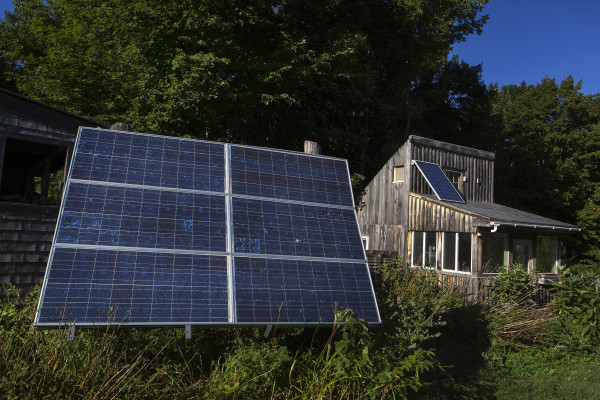Main regulators see the credit as too generous given the costs reductions in solar, and only the wealthy are making the investment, dumping burden back on other electric rate payers. Yet they are willing to pull in the reins on an industry that grew 50% last year. Tough trade off.
We can see both sides. Generally, we believe there's enough value to generating power locally, and cleanly, to justify the credits. We believe Main is better off populated by houses running off of local solar and wind then burning through oil and gas. But, we concur all sources of energy must stand on its own. As renewables are in so many places.
Main is tough because there's not a lot of sun, snow obscures the panels and its very wooded. Perhaps solar is not the answer there?


AUGUSTA, Maine — It didn’t go far enough for Gov. Paul LePage, but Maine utility regulators rankled advocates on Tuesday when they rolled back a policy allowing homeowners with solar panels to be credited for excess power sent to the grid.
The move was opposed by pro-solar groups, and it’s likely to be followed by another bid in the Maine Legislature to liberalize solar policy. Much of the dispute has been over “net metering,” the credit from utilities that Maine’s more than 2,000 residential solar power users can be eligible for.
Advocates for the policy call it a necessary incentive supporting Maine’s small solar industry, but LePage has long called for its elimination, saying it’s an unfair subsidy. Last year, the Republican vetoed a bill that aimed to increase solar production tenfold in the state.
Net metering was established in the 1980s to help users recoup the initial investment in a systems, but costs to do so have since dropped. Last year, Central Maine Power said these users made up 1 percent of peak demand, triggering Maine Public Utilities Commission review.
The final rule package was finalized on Tuesday, allowing existing customers and those signing up before 2018 to be grandfathered at current rates for 15 years, but those who enter the program after that will get reduced credits.
LePage blasted the commission’s decision in a statement, saying that by continuing net metering, the commission “continues to shift the burden away from those who choose to install and have the resources to afford roof-top solar installations” and onto ratepayers and businesses.
Maine’s solar industry saw more than 50 percent growth in the past year, but that belies a small capacity. A report from Environment Maine found that the state’s cumulative solar capacity in 2015 was second to last in New England, while The Solar Foundation found that the state’s 330 jobs in the solar industry was last in the region on a total and per-capita basis.
Dylan Voorhees, clean energy director for the Natural Resources Council of Maine, called the commission’s move “a roll-back of the one thing that is sustaining some amount of a solar market in the state.”
Advocates will now turn their attention to the Legislature, where Rep. Seth Berry, D-Bowdoinham, is proposing a bill that would enshrine net metering in statute, roll back barriers to community solar projects — now capped in at 10 users here — and re-establish a solar rebate program.
Voorhees said that after the commission’s move, the Legislature must act at a “critical moment” for the industry.
“We’re in last place,” he said. “Which direction are we going?”

No comments:
Post a Comment